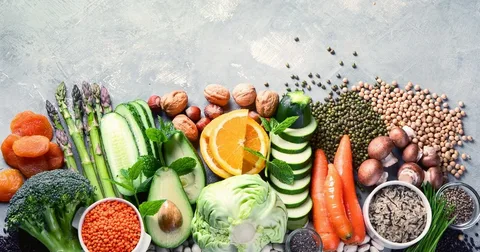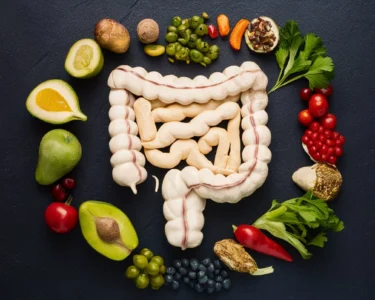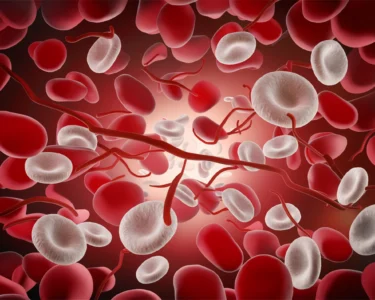A Plant-Based Diet Can Be the Secret to a Longer Life
A plant-based diet reduces insulin resistance, lowers blood pressure and BMI, prevents diabetes and heart disease, and boosts overall health. However, people on this diet need to be extra careful about getting enough protein and certain nutrients such as vitamin B12, iodine, calcium, and omega-3 fats.
There are many reasons to go vegan, from compassion towards animals to a desire to reduce one’s environmental footprint.
Introduction to Veganism and Plant-Based Diets
Veganism is a way of eating that excludes all foods containing meat, dairy, eggs and honey. It is sometimes used as a synonym for “plant-based diet,” but it’s important to understand that the two are not the same.
Plant-based eating includes a variety of healthy foods that are rich in disease-busting plant proteins, fiber, complex carbohydrates, antioxidants and vitamins and minerals. These foods do not contain damaging animal fats, cholesterol, pus or hormones and are low in saturated fat.
A vegan diet also has a lower environmental footprint than an omnivorous one. Feeding livestock takes up much more land than feeding people, and producing animal products produces a lot of climate-altering greenhouse gases.
Furthermore, vegans believe that it is morally wrong to kill animals for food. They do not want to be involved in the exploitation of animals, and they believe that it is cruel to prevent an animal from living a life on its own terms. Many vegans also support animal rights and animal welfare organizations. They believe that it is inhumane to harm animals and that our modern world is structured such that most people, without even thinking about it, cause indirect harm to animals every day.
The Science Behind Longevity and Plant-Based Eating
A well-planned plant-based diet that is rich in vegetables, whole fruits, legumes, nuts, and seeds can provide all the essential nutrients you need. The key is to make sure you’re avoiding processed junk foods and are getting enough protein, fiber, calcium, potassium, iron, vitamin D, omega-3 fatty acids, and zinc.
Research continues to link eating a plant-based diet to overall health and longevity. It also helps prevent chronic diseases like heart disease, diabetes, cancer, obesity, and high blood pressure.
Some studies have shown that vegans live longer than omnivores, and other studies suggest that people who eat plant-based diets may be more likely to reach their centennial birthdays. But it’s important to remember that a healthy lifestyle in general is also linked with longevity, and a vegan diet can be part of an overall healthy plan.
Key Nutrients in a Vegan Diet for Longevity
A plant-based diet can be a great way to live longer, but it’s important to make sure you’re getting all the nutrients you need. To start, consult a dietitian to create a meal plan that meets your needs. They can help you cut out foods like dairy, eggs, meat and fish if necessary and recommend other healthy options.
For example, vegans need to ensure they get enough calcium for bone health, as well as vitamin D (which helps protect against cancer and some chronic conditions), and omega-3 fatty acids, which are found in oily fish but can also be found in walnuts, flax seeds and tahini. They may also want to ensure they are eating enough protein, which can be found in beans, nuts and whole grains.
Research has shown that a plant-based diet can lower your risk of many diseases, including heart disease and high blood pressure, and increase longevity. If you’re thinking of making the switch, consult with a registered dietitian and your doctor to find a plan that works for you.
Benefits of Plant-Based Eating for Overall Health
A plant-based diet focuses on fruits, vegetables, nuts, seeds, whole grains, and legumes and limits or eliminates animal products like meat, fish/seafood, eggs and dairy. It is not the same as vegan eating and can still include small amounts of animal foods.
A well-planned plant-based diet is healthy and safe for most adults, and can improve many health conditions including obesity, high blood pressure, diabetes, heart disease and cholesterol levels. It may also help people lose weight, boost energy and lower inflammation.
Many people who switch to a plant-based diet notice that their digestion improves, as does their mental clarity. Some experience a decrease in blood pressure while others report more energy and less joint pain. In addition, a diet that focuses on high-fiber foods can aid weight loss. Limiting meat and other higher-fat foods may also support weight loss goals. As a bonus, a plant-based diet avoids harmful saturated fat and trans fat and is rich in vitamins, minerals and phytochemicals. A plant-based diet can be a great choice for those who want to live longer, healthier lives.
Plant-Based Meal Planning for Longevity
Plant-based eating is a powerful way to improve health and boost energy levels. It can help prevent a variety of chronic diseases including heart disease, diabetes, high blood pressure, obesity, and cancers, among others. It is also associated with lower risks of depression and frailty in older adults.
A plant-based diet provides all of the necessary protein, fats, carbohydrates, vitamins, minerals, and phytochemicals needed for optimal health. It is important to consult with a registered dietitian before starting a plant-based diet, particularly for patients on medications who may require close monitoring for low blood sugar or blood pressure.
A plant-based diet can be delicious and affordable, whether it’s vegetarian skillet chili over rice or a bowl of green soup with black beans and quinoa. Try to include a range of fruits, vegetables, whole grains and legumes and healthy fats like avocado, nuts, seeds, and olive oil. Avoid processed meats and dairy. Getting started on a plant-based diet can be as simple as cutting out meat and dairy once or twice a week, and gradually increasing this amount over time.
Tips for Success and Sustainability on a Vegan Die
A vegan diet eliminates all foods containing meat or animal byproducts. It also avoids leather, fur and other products made with animals as well as medications and cosmetics tested on animals. Many people choose to be vegan for a variety of reasons including protecting their health, saving the lives of exploited animals and promoting environmental responsibility.
Making the switch to a plant-based lifestyle is not easy for most people, particularly for those who are accustomed to an omnivorous diet that includes lots of meat and dairy. It’s recommended to start small and gradually replace animal-based foods with their plant-based alternatives over time.
Begin by stocking your pantry and refrigerator with a variety of staples such as beans (dry or canned), whole grains like brown rice, quinoa and whole wheat sprouted or sourdough bread, vegetables, fresh fruits, unsweetened nut milks, nutritional yeast, cooking oil , vegetable stock, agave nectar, seasonings and tofu. Keeping these essentials on hand will help you make meals that are delicious, nutritious and satisfying. A healthy, plant-based diet can also save you money.
Potential Considerations and Challenges to Address
A plant-based diet, also known as a plant-forward diet, is an overall eating pattern that is primarily composed of fruits, vegetables, whole grains, nuts, seeds, legumes and herbs and spices. It does not exclude meat, fish or poultry but rather emphasizes these foods proportionally more than other food groups. There are several subgroups within the plant-based diet: vegans, vegetarians, pesco-vegetarians and semi-vegetarians.
It is not always easy to meet daily nutrient needs on a plant-based diet. It takes time and effort to choose a variety of nutrient-dense foods to reach protein, fat and vitamin B12 goals. Many people find that relying on starchier higher-glycemic foods like breads and pastas can result in increased hunger.
It may also be difficult to meet nutrient needs in a low-fat plant-based diet. Research shows that people who are primarily vegan or vegetarian tend to have lower levels of healthy fats, such as omega-3 fatty acids, in their diets. These fats are important for heart health and brain function. People may also struggle to eat enough protein on a plant-based diet, especially if they do not eat enough beans and other high-protein foods.
Conclusion
Whether you are motivated by health, environment, ethics or animal welfare, a plant-based diet is a healthy choice. It’s high in disease-busting fruits, vegetables, whole grains, legumes and seeds and low in unhealthy processed foods and saturated fats. It’s rich in protein, fiber, vitamins, minerals and good fats, as well as a powerful anti-inflammatory blend of phytochemicals that protect against heart disease and cancer.
Unfortunately, the term “plant-based diet” is often misused. It can be used to describe any eating pattern that is not centered around meat and dairy, but in the context of research, the term is usually referring to a dietary intervention that strictly excludes all food containing animal products.
This is important because it means that studies comparing vegan and non-vegan diets can be more easily compared to each other, and this can help scientists and clinicians make the best decisions about the diets they recommend. However, this also means that people who are following a strict plant-based diet may miss out on some essential nutrients. For example, many vegetarians and vegans do not get enough protein, iron, calcium, zinc, vitamin B12 and omega-3 fatty acids.







